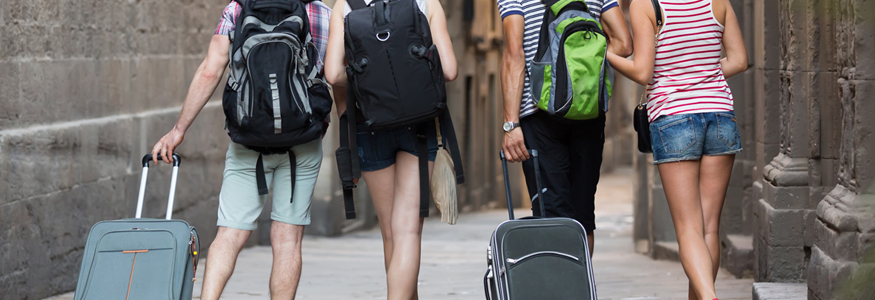In today's digital world, carrying physical copies of your ID and important documents seems a tad old-fashioned. Nevertheless, carrying some documents are essential—especially when you’re traveling.
Keep these documents safe
Take steps to keep these documents safe and accessible as you travel.
- Health-related information: When traveling overseas, you may find yourself in situations where you need information about your current vaccinations. Some countries in Central and South America, and also in Africa, require tourists to have a certificate showing they’ve had a yellow fever vaccination. For both domestic and international travel, it’s also a good idea to bring a letter from your doctor for any medications you may need, plus your doctor's contact information. Prescriptions, or, even some over-the-counter drugs, might be hard to get. Check the Traveler's Checklist on the State Department's website.
- Travel documents and personal identification: When traveling internationally, you will likely need your passport and other forms of identification, like a driver's license. You should lock your passport in a hotel safe unless it is required by the country you are visiting to carry the original with you at all times. You may also need a visa, depending on the country you’re visiting. You can find visa requirements and other country-specific information on the State Department’s travel website. If you plan on traveling to Europe, you should also keep in mind that as of 2025, the European Union requires U.S. citizens to get pre-approval before entering 30 countries.
- Emergency contacts: If you’re on the road, it makes sense to have emergency contact information close at hand in case unexpected problems arise. If there is a health emergency, it is important to know who to call, such as the insurance company that covers you overseas. If you purchase supplemental health insurance, evacuation insurance, or trip insurance, you should have those numbers readily available, as well as the numbers for credit cards in case they are lost or stolen. For international trips, you may want to store addresses and phone numbers for the closest US embassies or consulates.
- Travel itineraries: Vacations often entail a lot of details—flight information, hotel reservations, rental car bookings, and sightseeing tour logistics. Organizing this information in one place can make traveling less stressful, and it's easy to share digital versions with others.
How do I keep all this secure?
Because you can never be too careful, or too prepared, make duplicate copies of all your identification and travel documents. Stow one set in your suitcase, and give the other set to someone at home. When you’re in transit, keep the copies on you or in a carry-on bag that locks.
Here’s where you can finally use that technology. Scan your documents and securely store an electronic copy. You have a few ways to do this—you can email the documents to yourself, use a thumb drive to hold everything, or upload your copies to an online document storage company. Of the storage methods, uploading copies to a secure server offers the highest level of security.
When asking a friend or family member to hold on to your documents, minimize the risk of ID theft by giving them access to your securely stored electronic copies. Some digital storage options offer secure document sharing and can even give you control over who can download or share a link to your information.
If you do decide to share hard copies instead of electronic versions, don't forget to get your paperwork back at the end of your trip.
If your passport is lost or stolen, having a copy of it can make it easier to get a replacement from the US State Department. It is also a good idea to keep a passport-sized photo with you in case you need to replace a lost or stolen passport. If you're visiting a country that requires a visa, keep a copy of this document in a secure, digital archive.
You never know what could happen to your luggage when you travel. Give yourself some peace of mind knowing that—with access to the internet—you can upload, share, and retrieve your digital documents anytime, anywhere. That way you'll be ready to enjoy whatever adventures lie ahead.



